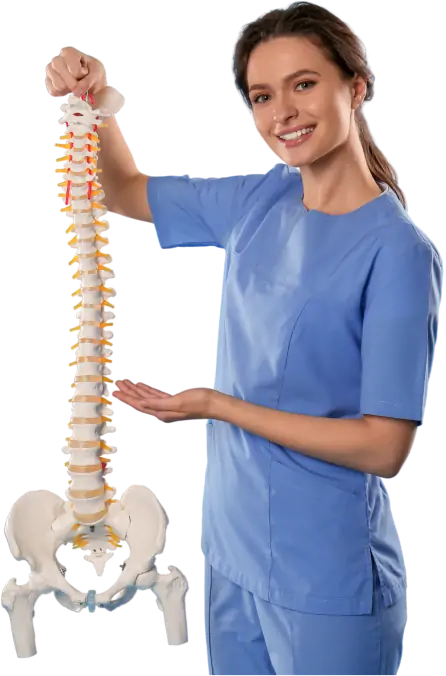Unlocking Stability: Why Choose Vestibular Therapy?
Home > Unlocking Stability: Why Choose Vestibular Therapy?
Recent Blogs
Dizziness Physical Therapy: A Path to Balance and Recovery
How Geriatric Physical Therapy in Tampa Can Help You

Unlocking Stability: Why Choose Vestibular Therapy?
Are you experiencing dizziness, vertigo, or difficulty maintaining balance? These symptoms can significantly disrupt your daily life and impact your overall well-being. It addresses these challenges by focusing on improving vestibular function and reducing symptoms associated with vestibular disorders. Whether you seek vestibular therapy in Tampa or elsewhere, specialized care can help you regain equilibrium and improve your quality of life.
What is Vestibular Therapy?
There is a specialized rehabilitation approach designed to address disorders affecting the vestibular system—a crucial component responsible for balance and spatial orientation. Conditions such as benign paroxysmal positional vertigo (BPPV), labyrinthitis, vestibular neuritis, and Meniere’s disease can disrupt this intricate system, leading to symptoms like vertigo, dizziness, nausea, and imbalance.
Causes and Symptoms
Vestibular disorders can stem from various factors, including:
- Inner Ear Issues: Such as infections (labyrinthitis), inflammation (vestibular neuritis), or structural abnormalities.
- Head trauma: concussions or injuries affecting the inner ear or brain.
- Aging: changes in vestibular function as we age.
- Medical Conditions: Such as Meniere’s disease or autoimmune disorders affecting the inner ear.
Symptoms may vary from mild to severe and can include:
- Vertigo: a sensation of spinning or whirling.
- Dizziness: feeling lightheaded, unsteady, or faint.
- Imbalance: difficulty walking or standing without support.
- Nausea and Vomiting: Often associated with severe vertigo episodes.
Benefits of Vestibular Therapy
They offer a range of benefits for individuals experiencing vestibular disorders such as dizziness, vertigo, and balance issues. Here are the key advantages:
1. Improved Balance and Stability
It includes exercises that focus on strengthening the vestibular system and enhancing proprioception (body awareness). By improving these aspects, individuals can regain better balance and stability. This benefit is particularly important for reducing the risk of falls and improving confidence in daily activities.
2. Reduction in Vertigo and Dizziness
Many vestibular disorders, such as benign paroxysmal positional vertigo (BPPV), can cause episodes of vertigo—a sensation of spinning or motion. They include specific maneuvers and exercises aimed at repositioning inner ear crystals (in the case of BPPV) or improving vestibular function, which can significantly reduce the frequency and severity of vertigo episodes.
3. Enhanced Functional Mobility
Individuals undergoing It often experience improvements in their ability to perform everyday tasks. This includes activities such as walking, climbing stairs, and turning, which may have been challenging due to dizziness or imbalance. Improved mobility contributes to greater independence and quality of life.
4. Management of Motion Sensitivity
Motion sensitivity, or sensitivity to movement (especially head movements), is common in vestibular disorders. It includes exercises and maneuvers designed to gradually expose individuals to movements that trigger symptoms. Over time, this desensitization process can help reduce motion sensitivity and improve tolerance to daily activities.
5. Personalized Treatment Plans
Each individual’s vestibular disorder is unique, requiring a personalized approach to treatment. Vestibular therapists conduct thorough assessments to understand the specific symptoms, functional limitations, and goals of each patient. Based on this evaluation, they develop tailored treatment plans that address the individual’s needs effectively, ensuring targeted and efficient rehabilitation.
6. Education and Self-Management Strategies
Education is a key component of vestibular therapy. Patients learn about their vestibular disorder, its underlying causes, and how specific exercises and lifestyle modifications can help manage symptoms. Therapists guide self-management strategies that empower patients to take an active role in their recovery and maintain progress outside of therapy sessions.
7. Comprehensive Rehabilitation
They often involve a multidisciplinary approach, collaborating with other healthcare professionals such as otolaryngologists (ENT specialists), neurologists, and physical therapists. This collaborative effort ensures comprehensive care, addressing all aspects of the patient’s vestibular health and facilitating optimal recovery outcomes.
Why Choose Vestibular Therapy at CareWell?
- Expertise and Experience: Our team of vestibular therapists is highly trained and experienced in treating a wide range of vestibular disorders.
- Comprehensive Care: We offer thorough evaluations, personalized treatment plans, and ongoing support to help you achieve optimal outcomes.
- Proven Results: Many patients experience significant improvements in symptoms such as vertigo, dizziness, and unsteadiness after completing it
Take the First Step Towards Better Balance
Don’t let vestibular disorders control your life. Whether you’re struggling with chronic vertigo or occasional dizziness, vestibular therapy in Tampa provides a pathway to recovery. Make the initial move to restore balance and enhance your standard of living. Contact us today to schedule your initial evaluation and start your journey to better vestibular health.
Conclusion
They offer hope and relief for individuals suffering from vestibular disorders. At CareWell, we are committed to helping you overcome the challenges of dizziness, vertigo, and balance issues through personalized care and comprehensive treatment strategies. Let us assist you in achieving better vestibular health and a more fulfilling life. Reach out to us today and discover how vestibular therapy in Tampa can make a positive difference in your life.
Leave a reply
Tags : Body Health,Bone,Chiropractic
Share This:
Physical Therapy that's designed entirely around you.
From athletes on the field to weekend warriors in life, being committed to a physical therapy program helps you to keep pushing ahead!


